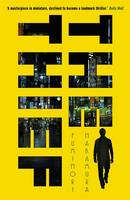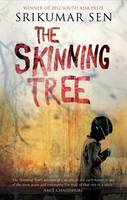 Fuminori Nakamura, The Thief (2009)
Fuminori Nakamura, The Thief (2009)
Translated from the Japanese by Satoko Izumo and Stephen Coates, 2012
Nishimura is a pickpocket, and so spends his days blending in even as he stands apart. He was once part of a group brought together by a man named Kizaki to rob a set of documents from a speculator’s house – or, rather, to be the expendable distraction, as the speculator was killed soon after. Now Kizaki is back, and has a new proposition for Nishimura. In this lean and spare novel, Fuminori Nakamura is concerned to explore what it means to live a life like Nishimura’s. The title of The Thief may not just refer to its protagonist; it could also be seen as applying to Kizaki, who has stolen Nishimura’s control over his own life. The layers of theft and manipulation go all the way down.
Dr Benjamin Daniels, Further Confessions of a GP (2014)
This is a follow-up to the first book in The Friday Project’s ‘Confessions’ series, whose (usually pseudonymous) authors pull back the curtain on their various professions with a collection of anecdotes. I’ve enjoyed all of these books that I’ve read; but I find there’s something particularly special about Daniels’ titles. He’s a good raconteur, that’s for sure; but he also controls tone superbly. He goes from telling amusing stories, to expressing heartfelt opinions on particular aspects of healthcare, to poignant reflections on the patients he knows he can’t save. Both his books are well worth reading.
Yoko Ogawa, The Diving Pool (1990-1)
Translated from the Japanese by Stephen Snyder, 2008
A collection of three novellas by the author of Hotel Iris; as in that novel, Ogawa explores some dark psychological territory in a way that belies the spare tone of her prose. The title story’s narrator is infatuated with her foster-brother, and prone to a blank cruelty which is unlikely to lead anywhere good. In ‘Pregnancy Diary’, a girl chronicles the ups and downs of her sister’s pregnancy, which she seems to regard with equal parts fascination and contempt. ‘Dormitory’ is more dreamlike (or nightmarish), as a woman returns to her old college dormitory, finding it a very strange place indeed. (For more on The Diving Pool, see Tony Malone’s readalong at January in Japan.)
Srikumar Sen, The Skinning Tree (2012)
As Japanese forces encroach on India during the Second World War, young Sabby is sent from his family in Calcutta to a boarding school in the northern hills. Sen’s novel is a portrait of Sabby’s illusions being comprehensively shattered, and the consequences that follow. Not only is school discipline harsh; the bright world which Sabby imagined himself to inhabit is taken from him. He has become Anglo-Indian without ever knowing what England means. And where the school’s regime fosters violence, so the boys follow – to a tragic end that Sabby can barely bring himself to recall.
Lee Ki-ho, At Least We Can Apologize (2009)
Translated from the Korean by Christopher J. Dykas, 2013
Jin-man and Si-bong met in a psychiatric institution, where they were routinely beaten by the caretakers for… well, they didn’t know; so they started coming up with their own wrongs to confess. When the institution is raided and shut down by the authorities, the two stick together because Jin-man has nowhere else to go. They set up in business, offering apologies on behalf of other people; and, if there’s nothing to apologise for, Si-bong and Jin-man will find something – or create it. The pair go to ever greater lengths as Lee’s novel progresses; and the book never quite turns in the way you might expect, up to the very end. (This book is part of the Library of Korean Literature series from Dalkey Archive Press.)

29th January 2014 at 8:56 am
A diverse round-up, which was your favourite from this collection of reading?